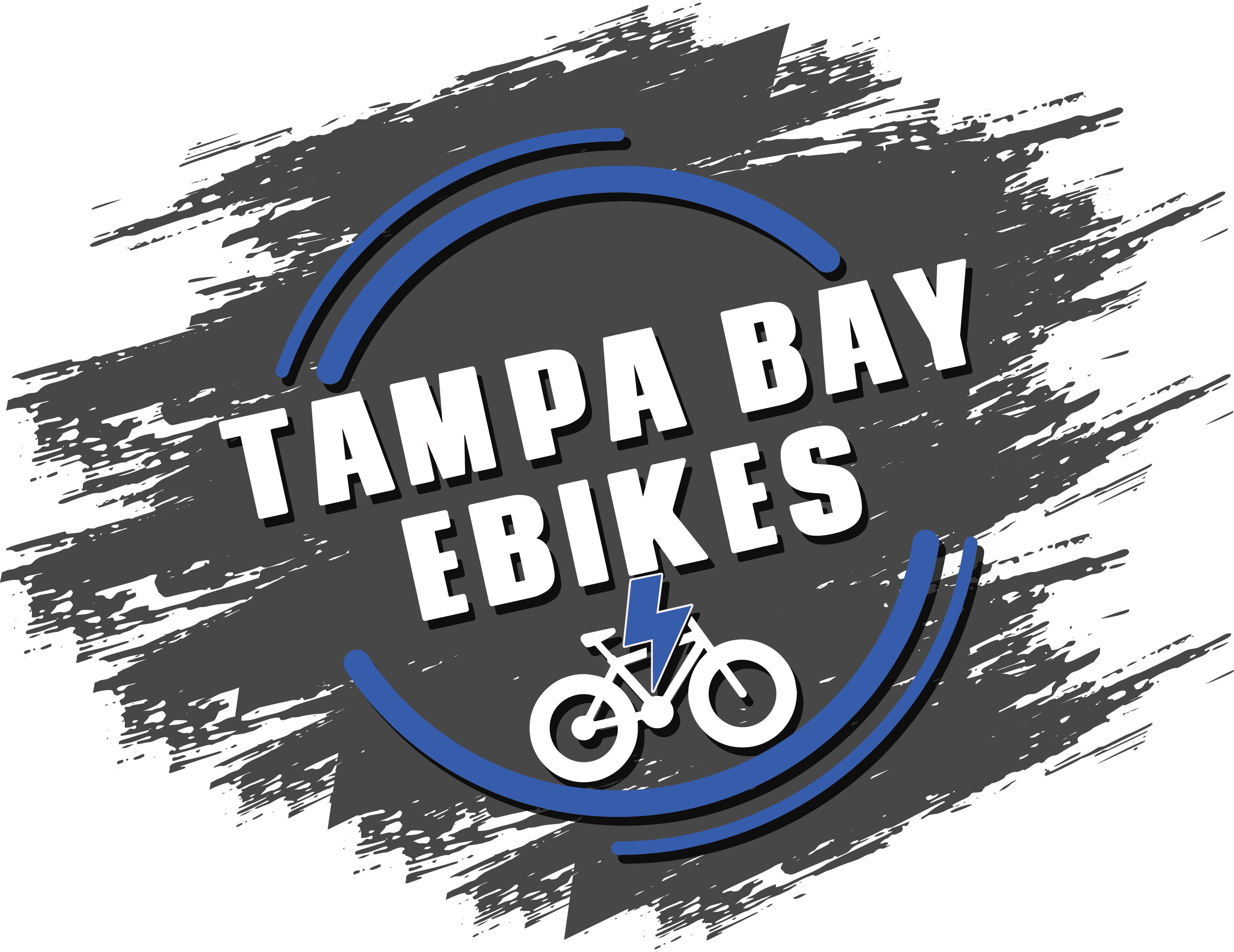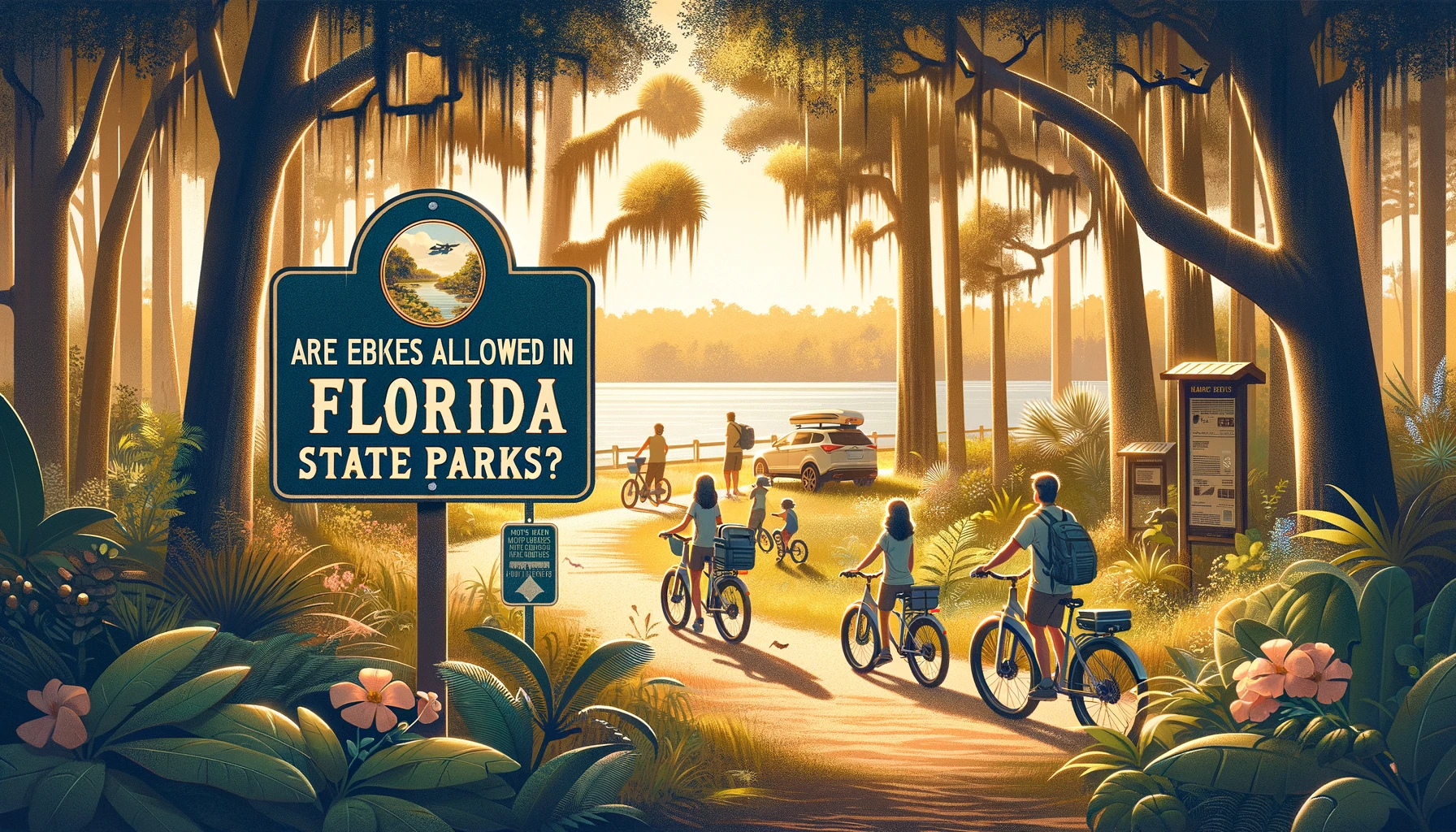Set against the backdrop of Florida’s natural beauty and diverse ecosystems, exploring the Sunshine State’s state parks on two wheels is an adventure waiting to be discovered. Picture this – the wind in your hair, the sun on your face, and the thrill of gliding through lush landscapes on an e-bike. But before you pedal off into the sunset, there’s one burning question on every outdoor enthusiast’s mind: Are e-bikes allowed in Florida state parks?
As the popularity of e-bikes continues to surge, blending technology with the joy of traditional biking, the rules and regulations surrounding their use in state parks have become a topic of interest. From the tranquil trails of Oleta River State Park to the rugged terrains of Myakka River State Park, each park holds its own set of guidelines. Join us on a virtual journey as we delve into the intricate web of policies, unearthing the answer to the pressing question: Can you ride e-bikes in Florida state parks? Let’s navigate through the foliage and unveil the secrets that these enchanting parks hold for e-bike enthusiasts.
Overview of Florida State Parks
Florida is renowned for its stunning natural landscapes, from pristine beaches to dense forests and crystal-clear springs. The state boasts an impressive network of state parks, each offering a unique outdoor experience. With over 175 state parks to explore, there’s no shortage of opportunities for outdoor enthusiasts to immerse themselves in nature.
Florida state parks are not only a haven for wildlife and plant species but also provide recreational activities such as hiking, camping, fishing, and biking. These parks offer visitors a chance to escape the hustle and bustle of city life and reconnect with the natural world.
Rise of E-bikes: A Game-Changer in Biking
In recent years, e-bikes have revolutionized the biking industry. Combining traditional pedal power with electric assistance, these bikes have gained popularity among both casual riders and avid cyclists. E-bikes make it easier to tackle challenging terrains and cover longer distances without exerting excessive physical effort.
The rise of e-bikes has opened up new possibilities for exploring outdoor spaces, including state parks. These bikes allow individuals with varying fitness levels or physical limitations to enjoy biking adventures that were once out of reach.
Understanding the Regulations: What Defines an E-bike?
Before delving into the policies surrounding e-bike use in Florida state parks, it’s essential to understand what exactly defines an e-bike. According to Florida law, an e-bike is defined as a bicycle equipped with a motor that has a maximum power output of 750 watts (1 horsepower) and is not capable of speeds exceeding 20 miles per hour on level ground.
E-bikes are classified into three categories based on their power assistance levels:
- Class 1: Pedal-assist e-bikes that provide assistance only when the rider is pedaling.
- Class 2: Throttle-assist e-bikes that can be propelled without pedaling, but the motor assistance cuts off at speeds exceeding 20 miles per hour.
- Class 3: Pedal-assist e-bikes that provide assistance up to speeds of 28 miles per hour.
Policies and Regulations in Florida State Parks
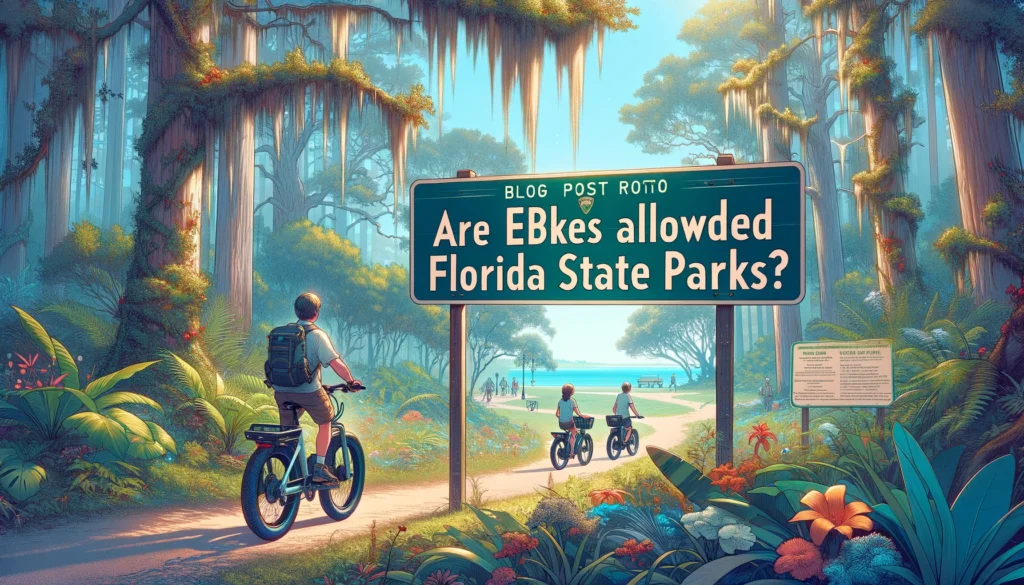
When it comes to e-bike use in Florida state parks, the policies and regulations vary from park to park. Some parks have embraced the presence of e-bikes, while others have imposed restrictions or outright bans. It’s crucial for visitors to familiarize themselves with the specific guidelines of each park they plan to visit.
In general, most state parks allow Class 1 and Class 2 e-bikes on designated biking trails. However, it’s important to note that certain trails may be off-limits to e-bike riders due to environmental concerns or safety considerations. Additionally, some parks require riders to stay on paved paths and prohibit off-road riding.
Navigating the Trails: Where Can E-bikes Roam Freely?
While each state park has its own set of rules regarding e-bike usage, there are several parks in Florida where e-bike riders can roam freely and explore a variety of trails. One such park is Oleta River State Park in North Miami Beach.
Oleta River State Park offers a network of scenic trails suitable for both traditional bikes and e-bikes. Riders can traverse through lush mangrove forests, pedal along picturesque shorelines, and even challenge themselves on mountain bike trails. With its diverse terrain and stunning views, Oleta River State Park is a paradise for e-bike enthusiasts.
Spotlight on Oleta River State Park: E-bike Friend or Foe?
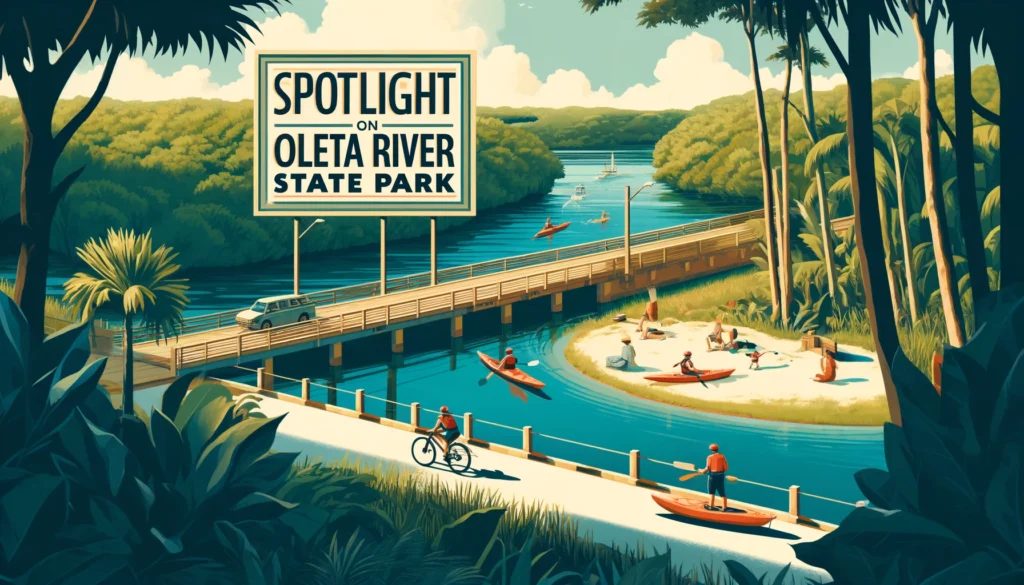
Oleta River State Park has embraced the presence of e-bikes and recognizes their potential to enhance the overall biking experience. The park’s policies allow Class 1 and Class 2 e-bikes on designated trails, providing riders with an opportunity to explore the park’s natural beauty effortlessly.
However, it’s important for e-bike riders to be mindful of other trail users and follow proper trail etiquette. Respecting the environment, staying on designated paths, and yielding to pedestrians are essential for maintaining a harmonious coexistence between e-bike riders and other park visitors.
Myakka River State Park: Navigating E-bike Trails
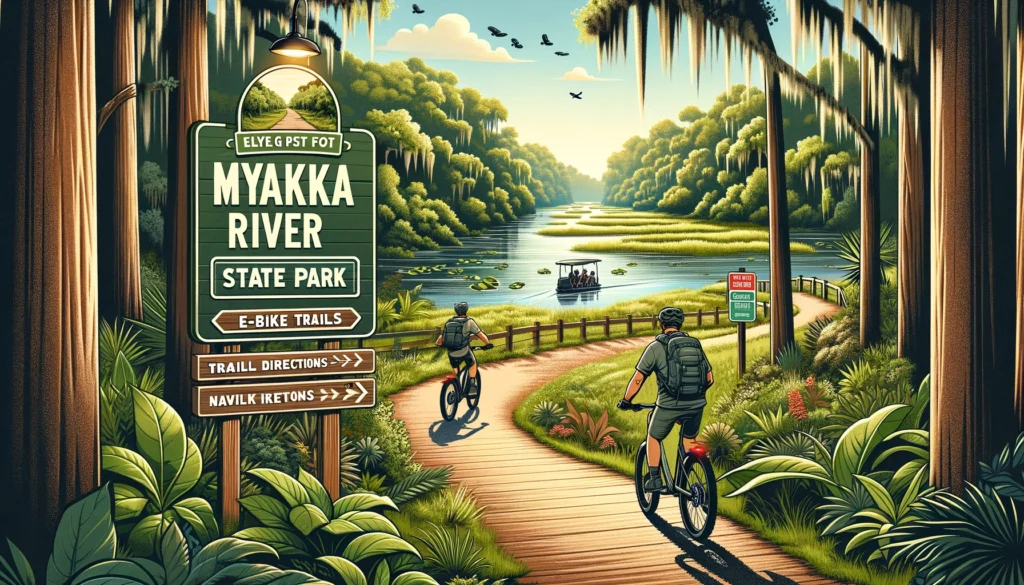
Another notable state park that welcomes e-bike riders is Myakka River State Park in Sarasota. Known for its expansive wetlands, diverse wildlife, and iconic airboat tours, Myakka River State Park offers a range of trails suitable for both traditional bikes and e-bikes.
E-bike riders can explore the park’s scenic landscapes while enjoying the convenience of electric assistance. From leisurely rides along paved paths to more challenging off-road adventures, Myakka River State Park provides ample opportunities for e-bike enthusiasts to immerse themselves in nature.
Benefits of Allowing E-bikes in Florida State Parks
The decision to allow e-bikes in Florida state parks comes with several benefits. Firstly, it promotes inclusivity by enabling individuals with physical limitations or reduced fitness levels to enjoy outdoor activities that were previously inaccessible.
E-bikes also encourage more people to embrace biking as a mode of transportation and recreation. By making biking easier and more enjoyable, these bikes have the potential to reduce reliance on cars, alleviate traffic congestion, and contribute to a greener environment.
Future Outlook: Trends and Innovations in E-bike Access within State Parks
As the popularity of e-bikes continues to grow, it’s likely that more state parks in Florida will adapt their policies to accommodate these modern modes of transportation. This could involve expanding the network of e-bike-friendly trails, implementing charging stations for e-bike batteries, or introducing educational programs to promote responsible e-bike use.
Furthermore, advancements in e-bike technology may lead to the development of lighter and more efficient models, further enhancing the biking experience. With ongoing innovations and increasing public interest, the future looks promising for e-bike access within Florida state parks.
Conclusion: Embracing the Future of Biking in Florida’s State Parks
As we conclude our exploration of e-bike use in Florida state parks, it’s evident that these modern bicycles have brought about a paradigm shift in outdoor recreation. While policies regarding e-bikes vary among different state parks, there are opportunities for riders to enjoy the natural beauty of Florida on their electric steeds.
Whether it’s gliding through Oleta River State Park or navigating the trails of Myakka River State Park, e-bikes offer a unique way to experience the diverse ecosystems that make Florida’s state parks so special. By embracing this technological advancement while respecting park guidelines and fellow visitors, we can ensure a harmonious coexistence between traditional biking and its electrified counterpart.
So if you’re an avid cyclist or simply someone looking for a new adventure amidst nature’s wonders, consider hopping on an e-bike and exploring Florida’s breathtaking state parks. The wind is calling – will you answer?
